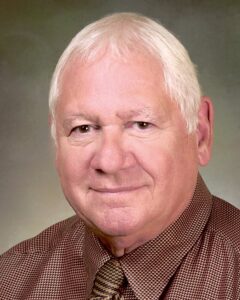 As athletes prepare for the 117th prep football season in this city’s history (that’s not a misprint), they are making a personal commitment to help their respective schools march toward a possible district championship. And everyone who knows he or she will be called into a game is working to prepare for that moment in time.
As athletes prepare for the 117th prep football season in this city’s history (that’s not a misprint), they are making a personal commitment to help their respective schools march toward a possible district championship. And everyone who knows he or she will be called into a game is working to prepare for that moment in time.
The athlete’s biggest support system should be his parents.
Over the decades, I’ve seen parents bolster or hamper their son’s or daughter’s efforts to achieve success through the agendas they set for the athlete.
And no one knows that better than Dr. Tony Melito, whose Winning Actions program deals with helping athletes enhance their performance through confidence building.
“I’ve found that with most young athletes, the fear of failure is there,” he said. “They’re worried about letting down their parents, their coaches, their teammates and their friends.”
Melito said the dynamic profile of an athlete who possesses such fear is one who is highly motivated, has a great work ethic and is one coaches love to work with.
“But these athletes want to win so badly, they wind up getting in their own way. They sabotage their own performance and behavior. And even though they do well in practice, they cannot transfer that practice confidence into competitive confidence,” he said.
A religion teacher at Brother Martin and former coach on the staff of legendary Crusaders coach Bob Conlin, Melito is also a certified sports psychologist who has devised a mental training program that applies sports psychology and sports hypnosis to help athletes perform at their best.
The programs, in tandem, address the mental and emotional factors that influence performance in sports.
“I tell parents that whatever happens in (my office) is (held) in confidence, within reason,” he said. “This program is about coaching; it’s not therapy. There are times where therapeutic issues do arise, and I do handle them because I’m trained and licensed as a professional therapist.
“But what I tell parents is to support their athletes and not put pressure on them because the fear of failure, social approval and perfectionism all tie into each other.”
A cause for concern
Melito has heard the stories firsthand from the troubled athletes themselves.
“They want to please mom and dad: ‘Man, they’ve spent so much money on me’ … ‘They’ve sent me to these camps’ … ‘I have a nutritionist’ … ‘I have a weight coach’ … ‘I really feel the pressure from them.’”
Or, Melito relates, “Dad just won’t get off my back. He’s not my coach. After the game, I know what I did wrong.”
“So, parents can be a factor in impacting their child’s performance in a negative way.”
Melito has been working with athletes for more than 10 years while embarking on a part-time career as a marriage and family counselor, for which he has a degree. Although dedicated to his teaching position at Brother Martin, Melito has helped student athletes from other schools while slowly expanding his Winning Actions program.
“Everyone wants to get the edge. Ask any athlete what percentage of the sport you play is mental? You’ll get a range of answers from 40-50 percent to 80 percent.
“A lot of programs have outstanding coaching, great weight-lifting programs. They may teach nutrition, but what’s missing from developing the total athlete is the mental-training approach. And I think coaches these days are really starting to appreciate and understand the mental part of the game and how important it is.”
No admission of weakness
It’s not always easy for a young athlete to sit opposite an adult and seek his advice.
“I’ve had a young man say to me, ‘This is hard for me. What I should do is man up. I shouldn’t be here,’” Melito said. “When an athlete is down and needs help, he or she might think, ‘I’m weak.’ But they want to perform at their best, and this is about enhancing their performance under pressure; knowing how to maintain your composure after making mistakes.
“An athlete needs to be able to trust in his skills and his practice routines,” Melito continued. “Confidence is not about emotions. Confidence is a belief; how strongly the athlete believes he can get the job done and perform. And this confidence is based on past successes and a bunch of variables an athlete is in control of that can ground his confidence.”
Melito said many athletes have high, strict expectations, which is not the same thing as setting goals.
“The expectations are about performance, statistics, how many hits they have,” he pointed out. “So what happens is those strict expectations put pressure on the athlete, especially when he doesn’t perform. Then he’s left feeling frustrated and disappointed. That creates negative
feedback.”
Melito said sports hypnosis is powerful therapy.
“People think that hypnosis is weird, but I did a hypnosis session with Country Day’s basketball team before the state championship tournament last year (and the team won the Class 1A title).” Melito displays a Country Day championship ring at his Metairie office.
“Sports hypnosis doesn’t control anyone’s mind,” he said. “A lot of people think (hypnosis) is staged stuff. I don’t make anyone quack like a duck.”
Instead, Melito uses hypnosis to put athletes’ minds in a state of altered awareness. “It’s deep concentration to program your unconscious mind so that you can perform at your best,” he said. “Everything you’ve ever heard, tasted, touched and smelled resides in the unconscious mind. Under hypnosis, you can go back and grab certain resources from the past and link them to the present and the future,” Melito noted.
“Breathing, relaxation, centering, replacing expectations with process goals, being confident in your ability; it’s a combination of all these things that will help an athlete to perform better.”
Ron Brocato can be reached at rbrocato@clarionherald.org.






